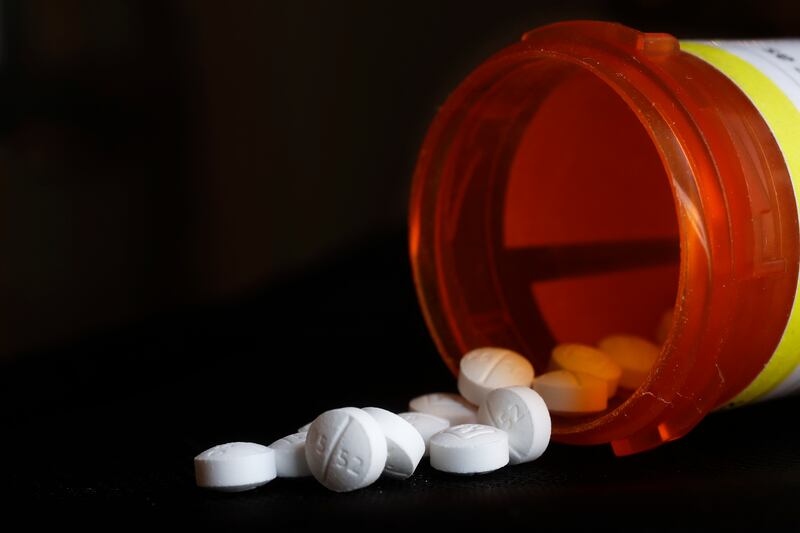Four drug companies have agreed to pay $26 billion to states to resolve thousands of lawsuits over their roles in the country’s opioid crisis.
A bipartisan coalition of state attorneys general announced the settlement with Johnson & Johnson and three of the country’s largest drug distributors on Wednesday.
States, including Utah, will now have 30 days to decide whether to accept the deal, while local governments will have 150 days to sign on. North Carolina Attorney General Josh Stein told reporters at a press conference he expects at least 40 states to agree.
Utah officials are now discussing those questions. The state stands to reap just over 1% of the total settlement amount or $309 million over 18 years, according to the attorney general’s office.
The Utah Legislature last year created a special account for any money derived from opioid litigation. According to the law, the funds could be used to address the effects of alleged crimes related to the manufacture, marketing, distribution or sale of opioids, among other things.
States, cities and counties sued the drug companies over their involvement in the opioid epidemic, which the Centers for Disease Control and Prevention estimates claimed 500,000 lives over the last 20 years.
Under the settlement, Johnson & Johnson will pay up to $5 billion over nine years, with up to $3.7 billion paid during the first three years. The three drug distributors — AmerisourceBergen, Cardinal Health and McKesson — would pay up to $21 billion over 18 years.
Johnson & Johnson denied any wrongdoing, saying in a statement Wednesday that its marketing and promotion of prescription opioid medications were “appropriate and responsible.”
The company voluntarily stopped selling prescription opioids last year, and agreed to no longer manufacture the drugs as part of the settlement.
AmerisourceBergen, Cardinal Health and McKesson said in a joint statement that the agreement was expected to resolve “a substantial majority of opioid lawsuits filed by state and local governmental entities.”
While the companies “strongly dispute the allegations in these lawsuits,” the settlement will deliver “meaningful relief to communities across the United States,” according to the statement.
None of the settlement money would go to individual families or people who suffer from opioid addiction. The majority of the funds are to be spent on opioid treatment and prevention, according to the attorneys general who negotiated the deal.
Some public health experts are citing the 1998 agreement with tobacco companies as a cautionary tale of runaway government spending and missed opportunities for saving more lives, according to the Associated Press.
Only fractions of the $200 billion-plus tobacco settlement have gone toward preventing smoking and helping people quit in many states. Instead, much of the money has helped to balance state budgets, lay fiber-optic cable and repair roads, the AP reported.
And while the settlement was a success in many ways — smoking rates have dropped significantly — cigarettes are still blamed for more than 480,000 deaths in the country each year.


